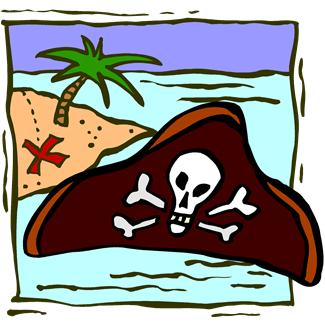Pirates: Terrorists of the Seas
Kidnappings. Beatings. Murders. Why aren't pirates paying for their crimes?

Moreover, the pirates—small bands of lightly armed youngsters, using small boats—terrorize major sea lanes and make a mockery of the often-repeated claim that the U.S. Navy is securing free passage worldwide. Neither the United States, its allies nor other nations that have been hit (including Russia and China) have saddled up to purge the oceans of this menace—despite the fact that for centuries piracy has been considered a crime of great severity. Its only parallel in the modern law of the high seas is the prohibition on the transport of slaves. Historically, pirates were regularly killed or executed after, at most, a rather perfunctory hearing by the captain of the ship that captured them.
Why are the pirates now so indulged? Some argue that it costs ship owners and insurance companies less to pay ransom than to pay for the armed protection of the vessels involved. However, such calculations do not include the “cost” of allowing a bunch of youngsters from Third World countries to terrorize passengers and crews alike, whether they are on cruises, small recreational boats or cargo ships.
Another reason often cited for allowing these marauders to act so freely is that the oceans are sufficiently vast that it is very difficult to patrol them and find the pirates. As one naval commander put it to me, “They can buy a blue tarp for $14.00 at Walmart and cover their boat, and making it invisible to air patrols.” I am no naval expert, but obviously the pirates can hardly attack a ship without revealing themselves. We do not have to go find them; they come to us! And when they do attack, they seem fair game—or, at least one would think.
Another major reason the pirates are rarely confronted seems to be that they are classified as criminals and not as terrorists and hence are accorded numerous rights. Because there is no international court with the jurisdiction to try pirates, they are prosecuted in the domestic courts of whatever nation seizes them. Thus, pirates are currently treated as if they are entitled to trial in a civilian criminal court, and they are granted a panoply of criminal procedural rights. Given the fact that piracy occurs on the high seas, the nature of the confrontations often involved, and the absence of police or other law enforcement agents, adhering to this approach is highly problematic. Collecting evidence at seas is difficult. The pirates often dump their weapons if they are about to be caught and then claim to be fishermen. Moreover, if they are brought to a country and found not guilty, they are said to have a right to seek asylum—on the grounds that their home country is an unsafe place to be. Of those pirates who are detained and turned over to legal authorities, the majority are “unlikely to ever stand trial primarily due to a lack of available evidence and substantial legal hurdles.” According to Douglas Burnett, an expert in maritime law, pirates are treated with a “catch and release philosophy that's usually reserved for trout.”
As I see it, pirates should be treated like terrorists. The nations of the world should declare that a given zone (say, 250 yards) around ships that is part of their defense periphery. Anyone who seeks to enter it would be asked to stop and identify themselves. If they ignore such requests, armed marshals on the ship would fire across their bow. If they still do not stop, they would be neutralized before they close in on the ship. It is not just about the safety of the passengers and the crew but also about the basic norm that we shall not look the other way when small bands of people set out to terrorize parts of our world—albeit in this case sea lanes rather than airplanes, trains or buses.
Amitai Etzioni served as a senior advisor to the Carter White House; taught at Columbia University, Harvard, University of California at Berkeley and is a professor at The George Washington University.
